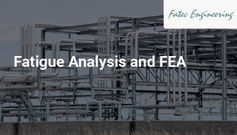Comprehensive Guide to Fatigue
Self-Paced Course
14 modules
Johannes Homan, MSc
SPC1002
Format:
On-demand
€472 For Teams
Get a 20% discount on all courses for you and your team.
Free Course Preview
Help yourself with your purchasing decision. Watch free content now.
Course Objective
"Provides a comprehensive overview of fatigue mechanics for engineers, and the knowledge and tools to help engineers design against fatigue failure."
Learn from home
100% online training
Video Lectures by Experts
connect with them online
1 Year access
to recordings and material
PDH Hours qualified course
Read more here
About the course
Self-paced
14 modules
13 hours
English
1yr access
SPC1002
Did you know that the number of structural failures due to fatigue is much larger than due to static overload? Managing and preventing problems due to metal fatigue should be considered a key capability of a structural engineer. Safe operation of your structural asset is important to you, you want to avoid your structure collapsing.
This course will give you a detailed overview of fatigue; practical advice and guidelines are given, and justified based on the theoretical background. After this course you will know exactly what fatigue is, what loads are causing fatigue, how you can control fatigue, how you can improve your design and which factors are good and bad for fatigue. With this knowledge you can determine a safe fatigue life for your structure.
The course consists of 14 online modules based on video lectures. Participants also gain access to a technical archive of fatigue related articles by the instructor. All training content is provided through your EngineeringTrainer account.
After the course you have unlimited access to the course for 1-year, including any new course material. This allows you to perform modules again should you need to refresh your knowledge for your projects.
Questions? Contact us
hello@engineeringtrainer.com
+31 (0)85 058 0051
Monday - Friday, 9am - 6pm CEST
Meet your instructor
Program & Details
Welcome to the course
Your instructor
How to use this course
Personal Certificate requirements
What is fatigue?
Why is fatigue important?
Fatigue mechanisms & phenomena
Samples of two modules are available for free, so you can learn more about the teaching style and understand if the course fits your needs.
Effect of materials
Effect of mean stresses
Type of loading
Samples of two modules are available for free, so you can learn more about the teaching style and understand if the course fits your needs.
Stress concentrations
Notch sensitivity factor
Introduction
Fatigue predictions using nominal stresses
Examples
Safety Factors
Fatigue prediction using local stresses
Examples
Fatigue prediction using FEA
Design process
Accuracy of fatigue analyses
Practical examples of good and bad design
Fatigue of welded joints
Fatigue analyses for welded joints
Bolts loaded in tension
Bolts & rivets loaded in shear
Load spectra
Cycle counting
Damage accumulation
Residual stresses
Surface conditions
Effect of temperature
Corrosion & stress corrosion cracking (SSC)
Corrosion fatigue
Fretting
Stress Intensity Factors
Crack growth under constant amplitude loading
Crack growth under spectrum loading
Residual strength
Crack growth and residual strength analysis
Experimental approach
Coupon testing through to full scale testing
Quantification of scatter
Scatter factors and coupling with safety factors
Multi-axial stress states
Fatigue mechanism under multi-axial stress state
Proportional and non-proportional multi-axial stress states
Maintenance policies in relation to fatigue
Reactive and preventive maintenance
Congratulations
Course evaluation survey
Your Personal Certificate
Rate this course
Related resources & follow up
Results
After this course, you...
have a fundamental understanding of high cycle fatigue, and how to interpret the fatigue calculation methods in industry standard codes.
know how to identify fatigue critical locations, and are familiar with the analysis methods (both analytical and FEA) to predict the fatigue life.
understand the limitations of fatigue life analysis and the effect of scatter.
have seen how fatigue behaviour is impacted by the mean stress, the surface condition and surface treatment.
understand how fatigue behaviour is impacted by the environment, such as temperature and corrosion.
have seen the concepts for damage accumulation and combined fatigue loading.
understand how to test structural components for fatigue.
know the crack growth mechanism and can calculate the residual strength.
Who should attend this course
Those involved in structural design or reviewing designs;
Stress engineers
Structural designers
Test engineers
Lead engineers
Engineering managers
Prerequisites:
An understanding of loads and stresses
A basic understanding of material behaviour
Level: Intermediate
Access to the course.
After your purchase is confirmed it will be activated to your account on the EngineeringTrainer learning portal. Here you will find the course in your dashboard and you will be guided step-by-step through the different course modules. You receive 1-year unlimited access to the course. This allows you to perform modules again should you need to refresh your knowledge.
Learn by doing.
The course is based on video content with video lectures given by the instructor. The videos can be viewed as many times as desired and these video lectures will help you to grasp the important technical concepts.
This course is self-paced and is not subject to specific dates. The course contains 14 modules with a total of 13 hours of content which can be performed at your own pace. A Personal Certificate will be provided to participants if they finish the course within the first month after purchase. This incentive will motivate you to perform the course quickly thereby improving your learning curve.
You receive 1-year unlimited access to all modules, should you wish to refresh your knowledge.
Participants of this course receive a personal digital certificate if they meet the following requirements:
have completed each module of the course,
fill in the Course Evaluation Survey.
Example Certificate:
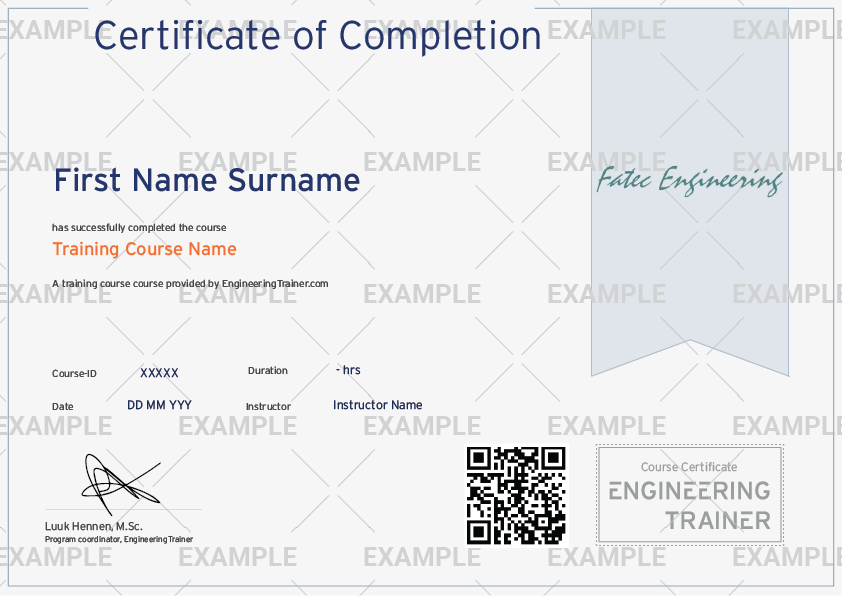
FAQ
Video lectures,
Technical archive of articles from the instructor
The training videos are not available for download, but can be accessed directly with your account on the portal.
You receive 1-year unlimited access to the course, which allows you to watch content again.
No, it is not possible to ask questions to the trainer. It is possible to submit comments and ideas for new topics and modules.
No technical software is required for participants of this course.
If your computer and internet connection is able to play videos online (YouTube) you will be able to follow the course. Note that almost all browsers are supported, except for Internet Explorer.
Yes, this course qualifies for PDH hours as per the NCEES CPC Guidelines.
Related Courses

Acoustic and Flow Induced Vibrations (AIV and FIV) in Industrial Systems
By: Wijnand Schoemakers, MSc
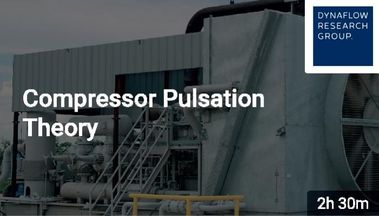
Pulsation & Vibration theory for Reciprocating Compressors
By: Wijnand Schoemakers, MSc
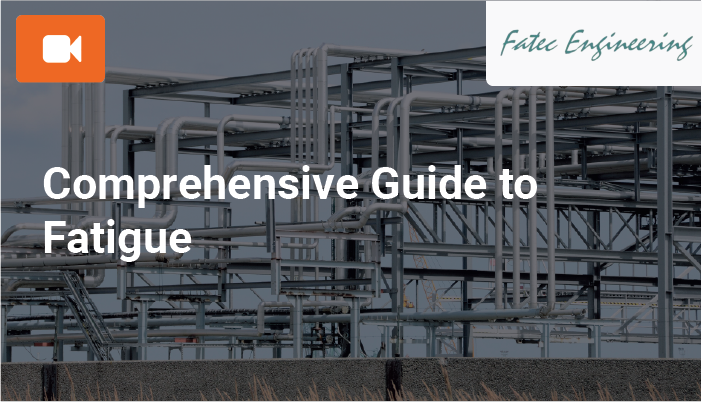
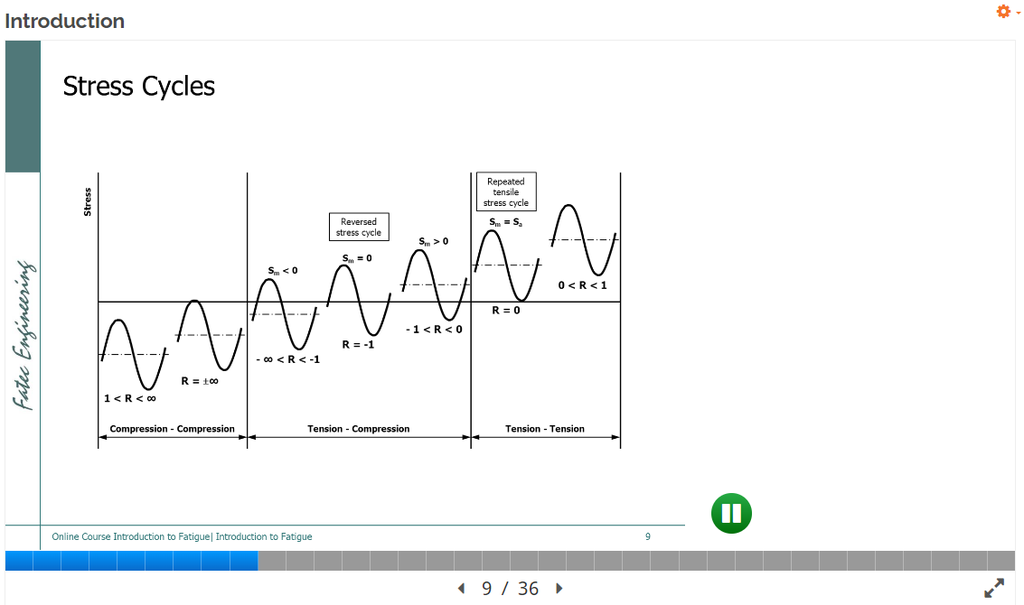

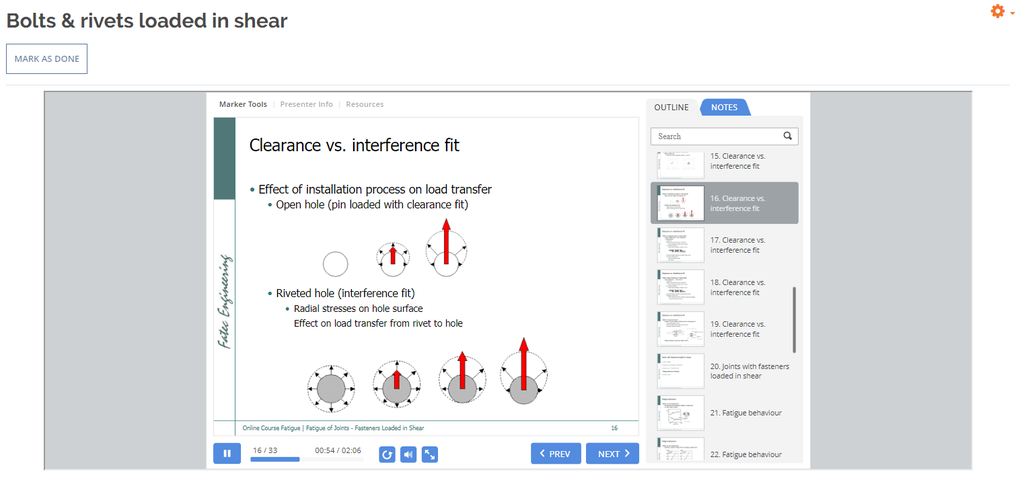
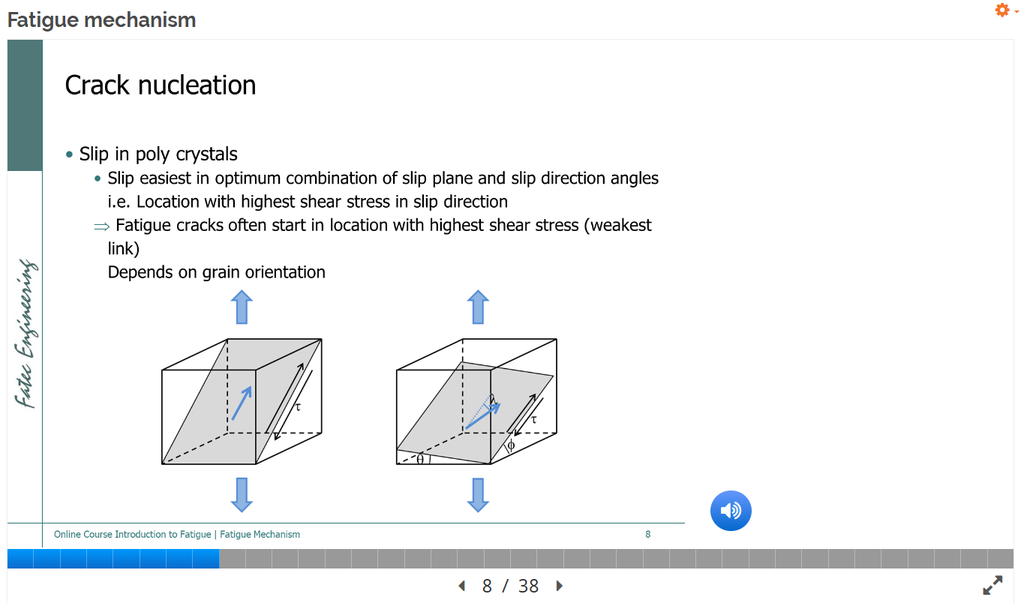
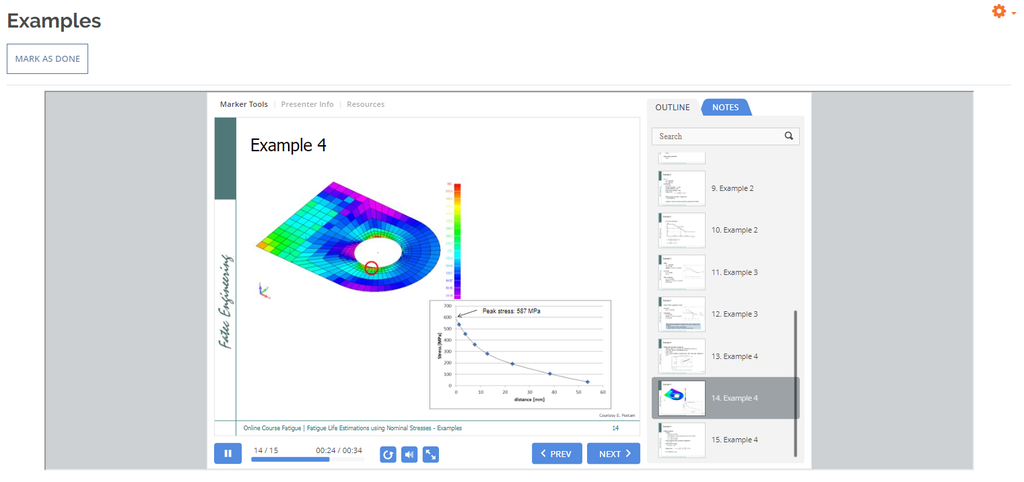
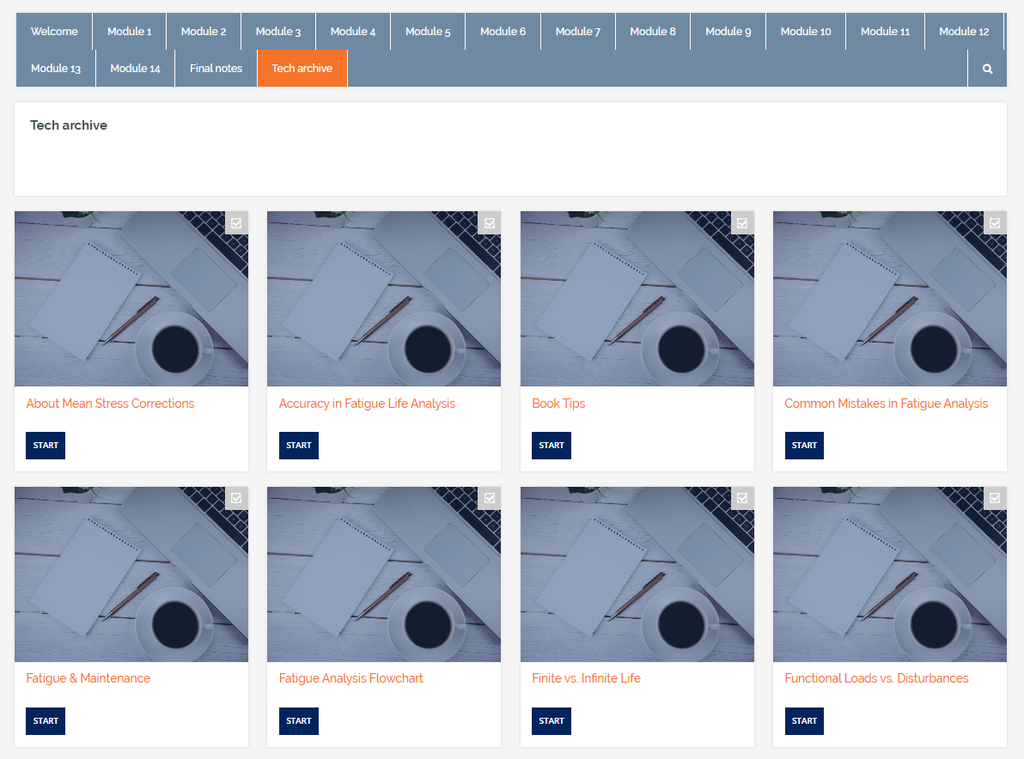
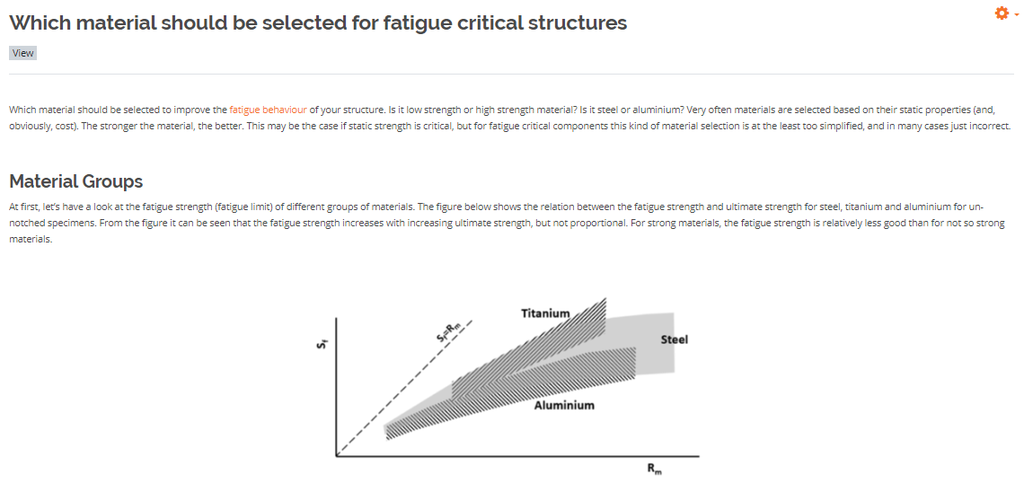
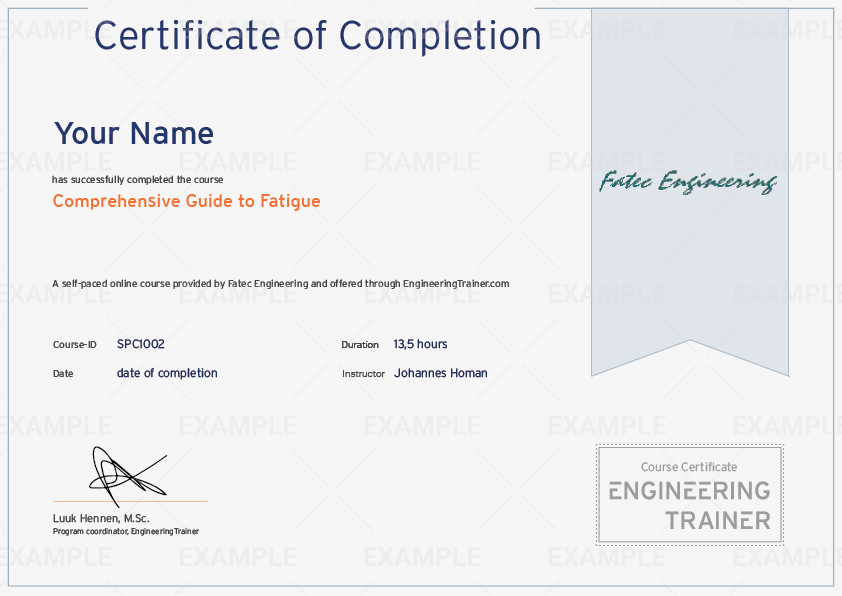
















![[SPC118] Designing according the EN13445 code](/web/image/220657/SPC118.png)
